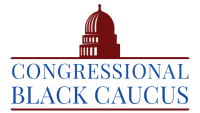cbc.events@mail.house.gov
Friday, July 10, 2020, at 1:00 PM ET
(Black PR Wire) Washington D.C. -- 49 years ago, the Congressional Black Caucus (CBC) was formed to address the racism that CBC members faced inside the institution of Congress and to address the racism all Black people faced then and now in the United States and around the world. It is in their memory and it is on their shoulders that the 55 members of the CBC stand today.
On May 25th, the world witnessed the video execution of George Floyd. Within hours, protests began in Minneapolis and quickly spread to all fifty states. Within days, protests spread around the world, with people in other countries calling out human rights abuses in the United States. Within weeks, all 54 nations in Africa called on the United Nations to hold a hearing about racism and human rights in the United States.
Because of this international movement for justice, on June 25th, 30 days after the murder of George Floyd, and on what should have been the 18th birthday of Tamir Rice, the Congressional Black Caucus proudly led the bipartisan passage of the George Floyd Justice in Policing Act.
But we will not stop and the movement for justice will not stop until this bill is passed in the Senate and signed into law by the President. What’s more, the movement for justice has now expanded to include a call to end systemic racism in the US.
Join us for a virtual town hall to discuss current efforts undertaken by members of the CBC to continue to address systemic racism. Then join the movement to dismantle systemic racism wherever it may hide.
RSVP at CBC.HOUSE.GOV/EVENTS
THE GEORGE FLOYD JUSTICE IN POLICING ACT
SOCIAL MEDIA INFLUENCER CONTENT
Social Media Content:
- Post this VIDEO.
- Post one of these graphics about the Justice in Policing Act:
How to talk about the Justice In Policing Bill:
- Bold, Unprecedented Reforms to Curb Police Brutality, End Racial Profiling, and Eliminate Qualified Immunity
- Transforms the Culture of Policing to Address Systemic Racism and Help Save Lives
- Holds Police Accountable and Increases Transparency
What would the bill do?
- Bans all chokeholds;
- Bans no-knock warrants in drug cases;
- Bans racial, religious and discriminatory profiling;
- Eliminates the qualified immunity doctrine that is a barrier to holding police officers accountable for wrongful conduct;
- Establishes a National Police Misconduct Registry to improve transparency and prevent problematic officers who are fired or leave one agency, from moving to another jurisdiction without any accountability;
- Requires data collection, including mandatory body cameras and dashboard cameras;
- Establishes new national standards for policing;
- Provides no new funds and reinvests in communities by establishing the Public Safety Innovation grants for community-based organizations to help reimagine policing in their communities;
Other Resources:
Comparison of George Floyd Act to Republican Bill
# # #
